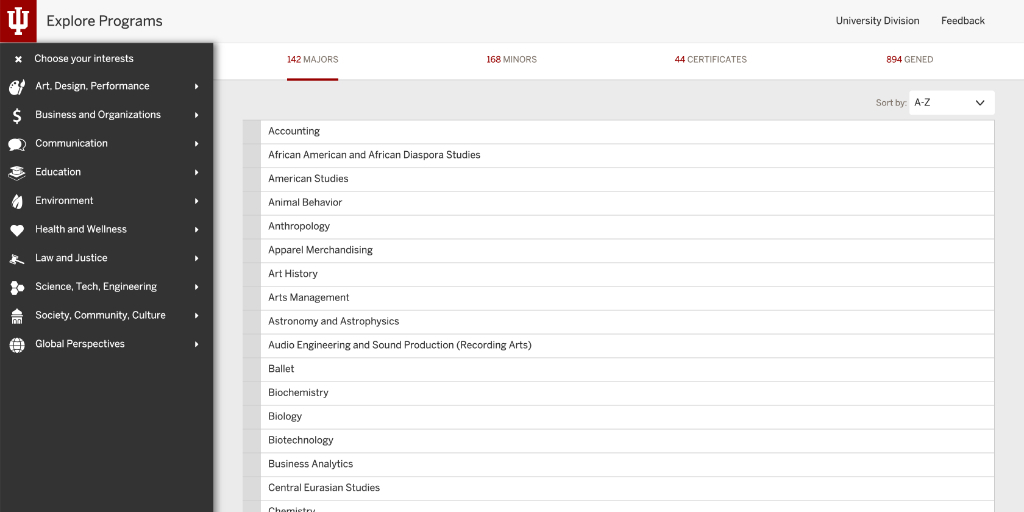Physics Major Related Careers
The following careers are directly or indirectly related to the study of this major. Click the job title to learn more about it. To search for more career options, visit OnetOnline.org.
The Physics Department at IUB offers two degree options: B.A. and B.S. in Physics. The B.A. in Physics provides a broad introduction to the study of matter and energy, including their properties, Newtonian mechanics, and thermodynamics. Students learn both theoretical and experimental approaches and complete hands-on lab work. The B.S. in Physics focuses on preparing students for graduate study and includes the option of a thesis and/or internship. Students interested in majoring in Physics or pursuing research careers can enroll in the highly interactive honors section of PHYS-P 221 and PHYS-P 222.
The B.S. degree option provides sufficient training for further graduate study in physics as well as immediate entry into the field upon graduation. The B.A. degree is best suited for students pursuing a double major in a related field or are interested in physics in a broad, modern sense.
For detailed information about this major and degree requirements, visit the departmental website and the College of Arts & Sciences Academic Bulletin.
Talk with a coach about your questions related to this major, your interests, and your career goals.
Schedule an appointment
University Division's Explore Programs tool is the place to go for academic information about any IUB major, minor, or certificate.
Open in Explore ProgramsThe following careers are directly or indirectly related to the study of this major. Click the job title to learn more about it. To search for more career options, visit OnetOnline.org.
John Holland developed a theoretical framework consisting of six general themes that describe broad areas interest relating to self and the working world. If you are interested in discovering your career interests, visit our Learn more about yourself page to learn about the Strong Interest Inventory.
This major consists of the following themes:
Below is a sampling of skills related to this major mapped from the Skillscan Driver Assessment. The SkillScan assessment provides a simple 3-step process to help you learn about your strengths and weaknesses, the skills you enjoy and want to use in a career and those skills needing development. Consider taking the SkillScan assessment to better understand your skills as it relates to majors at IU.
Our unique IU Career Guides offers the A-Zs of each field’s preferred educational backgrounds, as well as employment opportunities and insider tips, industry-related interview questions, and a lot more. Below are related career guides for this major.